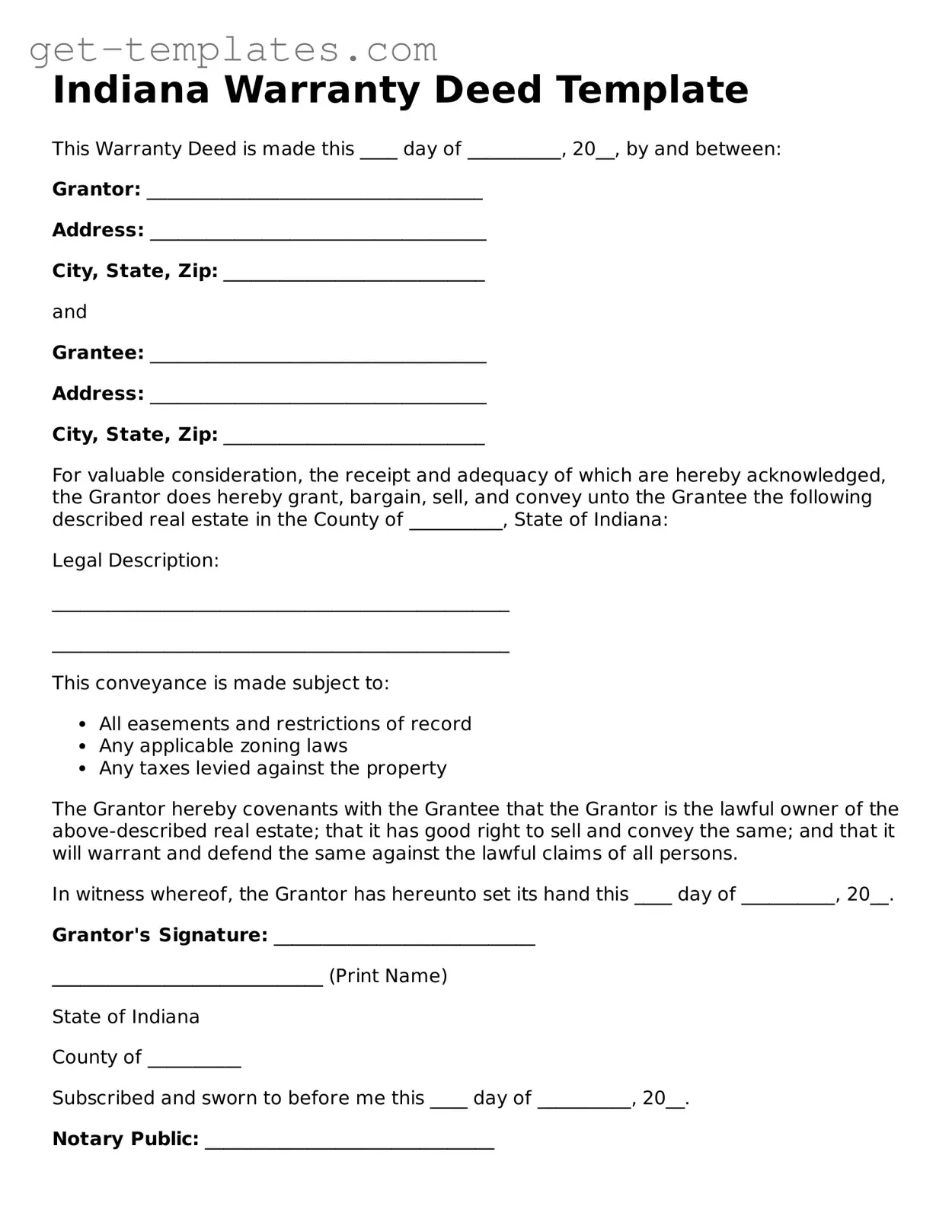Attorney-Approved Deed Document for Indiana
The Indiana Deed form is a legal document used to transfer ownership of real property from one party to another. This form ensures that the transaction is recorded and recognized by the state, providing clarity and security for both the buyer and the seller. Understanding its components and requirements is essential for anyone involved in real estate transactions in Indiana.
Get Document Online

Attorney-Approved Deed Document for Indiana
Get Document Online
You’re halfway through — finish the form
Finish Deed online — edit, save, download made easy.
Get Document Online
or
⇓ PDF Form
